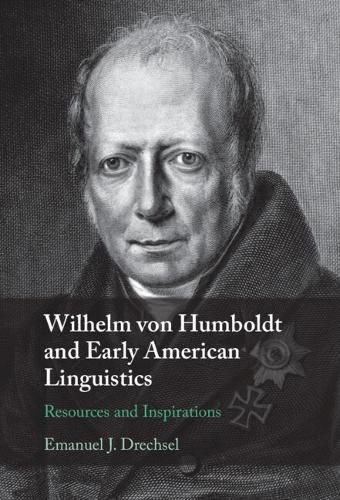Readings Newsletter
Become a Readings Member to make your shopping experience even easier.
Sign in or sign up for free!
You’re not far away from qualifying for FREE standard shipping within Australia
You’ve qualified for FREE standard shipping within Australia
The cart is loading…






Wilhelm von Humboldt (1767-1835), an early pioneer in the philosophy of language, linguistic and educational theory, was not only one of the ?rst European linguists to identify human language as a rule-governed system -the foundational premise of Noam Chomsky's generative theory - or to re?ect on cognition in studying language; he was also a major scholar of Indigenous American languages. However, with his famous naturalist brother Alexander 'stealing the show,' Humboldt's contributions to linguistics and anthropology have remained understudied in English until today. Drechsel's unique book addresses this gap by uncovering and examining Humboldt's in?uences on diverse issues in nineteenth-century American linguistics, from Peter S. Duponceau to the early Boasians, including Edward Sapir. This study shows how Humboldt's ideas have shaped the ?eld in multiple ways. Shining a light on one of the early innovators of linguistics, it is essential reading for anyone interested in the history of the ?eld.
$9.00 standard shipping within Australia
FREE standard shipping within Australia for orders over $100.00
Express & International shipping calculated at checkout
Wilhelm von Humboldt (1767-1835), an early pioneer in the philosophy of language, linguistic and educational theory, was not only one of the ?rst European linguists to identify human language as a rule-governed system -the foundational premise of Noam Chomsky's generative theory - or to re?ect on cognition in studying language; he was also a major scholar of Indigenous American languages. However, with his famous naturalist brother Alexander 'stealing the show,' Humboldt's contributions to linguistics and anthropology have remained understudied in English until today. Drechsel's unique book addresses this gap by uncovering and examining Humboldt's in?uences on diverse issues in nineteenth-century American linguistics, from Peter S. Duponceau to the early Boasians, including Edward Sapir. This study shows how Humboldt's ideas have shaped the ?eld in multiple ways. Shining a light on one of the early innovators of linguistics, it is essential reading for anyone interested in the history of the ?eld.